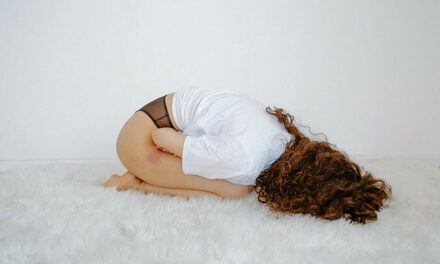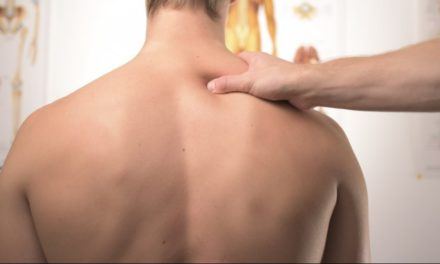Most people get confused whether lightheadedness, vertigo and dizziness all mean the same thing. In this article, we are set to clear your doubts and give you the common ground for lightheadedness, vertigo and dizziness, and how to tackle them. Importantly, as our topic suggested, we will be exploring all the best essential oils for lightheadedness too.
Before further due, let’s identify what’s lightheadedness means, and how to distinguish it from vertigo and dizziness.
What is Lightheadedness?
Lightheadedness is a situation where you feel as though you will faint.
You may experience heaviness of the body, and you will think you are temporarily suffering from ‘ischemia’ (lack of sufficient blood flow to the brain).
This feeling is usually accompanied by a loss of equilibrium (balance) and a blurred vision.
You will, in turn, feel dizzy, but it won’t be accompanied by a spinning sensation, as in the case of vertigo.
Saying so, there are some similarities between lightheadedness and vertigo. Let’s explore them now…
What is Vertigo?
Vertigo is a sensation of a ‘spinning’, and/or ‘whirling’ motion where the person affected has a feeling of off balance.
In vertigo, despite your surrounding being very still, you will think your surrounding is in motion. It is sometimes accompanied by a floating feeling. The person affected may also feel like fainting.
Given we know a bit about vertigo, let’s see how lightheadedness is different from dizziness.
What is Dizziness?
The term ‘dizziness’ is used to describe the feeling of faintness, giddiness and unsteadiness.
Although to some, it can mean different things, it is sometimes used while referring to lightheadedness.
Dizziness denotes two things;
1. It is used to describe both lightheadedness and vertigo.
2. Lightheadedness and vertigo all cause dizziness. They have the same effect with different symptoms, causes and treatments.

As such, it’s important to dig into the causes, symptoms and treatments of the 3 conditions to better understand them.
What Causes Dizziness?
The feeling of dizziness is quite common and shouldn’t bother you. It usually indicates that you need some rest.
But, when it becomes continuous, or when it lasts longer than normal, there is every reason to be worried.
The causes of dizziness include the following.
-
Benign positional vertigo (BPPV)
Most times, when we switch positions quickly, we experience dizziness (fainting feeling or unsteadiness) as a result of this medical condition.

-
Meniere’s disease (MD)
When there is excessive fluid accumulation in the ear, or when there is hearing loss.
-
A sudden drop in blood pressure
When there is a reduction in blood pressure, it is usually accompanied by a feeling of dizziness.
-
Heart muscle disease
This is the inability of the heart to deliver blood to the body as a result of ‘cardiac muscle’ disease.
-
Anemia
This is a condition in which the number of red blood cells is less than normal.
-
Anxiety disorders
Constant feeling of fear of what is to come. This usually causes dizziness.
Tip: Did you know an Anxiety Bracelet could help with anxiety and fear feelings?
-
Hypoglycemia
This is low blood glucose.
Tip: You might not know these things about nighttime blood glucose drops. The key is understanding all steps on how to avoid nighttime hypoglycemia.
-
Dehydration
When there is excessive loss of fluid.
-
Motion sickness
This is common among people who travel, especially when the travel involves a cruise.
-
Excessive exercise
What are the Symptoms of Dizziness?
Here are the symptoms of dizziness.
- Lightheadedness
- Spinning
- Whirling
- Tiredness
- Confusion
- Feeling off balance
- Chest pain
- Nausea
- Vomiting
Treatment for Dizziness

This how we can treat and manage dizziness. It’s all depends on the cause of dizziness.
o In the case of benign positional vertigo, surgery could be an option.
o Meniere’s disease could be treated by eating diets low in salt, taking injections in between, and undergoing ear surgery if need be.
o In the case where it is caused by excessive exercise, heat or dehydration enough intake of fluids could help.
o When the dizziness becomes recurrent, you can take a rest or relax until you feel stable again.
o Always use walking support if need be.
o Use the handrails for support while moving up or down the stairs.
o Be careful while trying to change positions.
o Avoid substances that contain caffeine, tobacco or alcohol.
o Increase your intake of fruits and vegetables as this helps prevent dizziness.
Knowing a lot about dizziness, now let’s turn into vertigo.
Tip: Chinen salt is a healthier option than regular table salts.

Causes of Vertigo
Vertigo is usually associated with inner ear imbalance or central nervous system (CNS) problems.
-
Labyrinthitis
This is a condition where an underlying infection causes the inner ear to be inflamed. This will affect cranial nerve III, glossopharyngeal nerve, which performs a motor function of sending information to the brain about the position, sound, and head motion.
The condition may also be accompanied by hearing loss.
-
Vestibular neuritis
This is an underlying infection which causes the vestibular nerve to be inflamed.
Usually accompanied by nausea and clouded vision, while hearing often remains unaffected.
-
Cholesteatoma
It is also caused by infections which affect the middle ear.

-
Other causes
Other mild causes resulting vertigo include
o Headache
o Damage to the head
o Perilymphatic fistula
This is a medical condition resulting in a weak passage in the ear allowing leakage of fluid from the inner ear to the middle ear.
This can occur when there is a tear in any of the membranes between the middle ear and inner ear.
o Ataxia
Ataxia is an inability to coordinate muscle activity during voluntary movement.
This usually leads to muscle weakness.
o Diseases affecting the brain stem or cerebellum
o Pregnancy
Most pregnant women generally experience vertigo.
What are the Symptoms of Vertigo?
The general symptom associated with vertigo is the moving or spinning sensation.

Although vertigo itself is a symptom of other various conditions, it could be accompanied by other symptoms such as the following.
- Headache
- Imbalance
- Motion sickness
- Feeling of faintness
- Nausea
- Tinnitus where your ear constantly keeps ‘ringing’
- Feeling as though your ear is full.
- Uncontrollable movement of the eye from one side to another generally referred to as nystagmus.
Treatment of vertigo
People experiencing vertigo may feel OK after a while without treatment, whereas in some cases, treatments may be needed.
Again, the treatment will depend on the cause of vertigo.
For example, Vertigo due to an allergic reaction or as a result of motion sickness and nausea – Antihistamine is highly recommended.
Some antihistamine has a side effect of dizziness, so this should be taken only based on prescription. Self-medication should be prohibited.

Some home treatment of vertigo include:
o When the spinning is severe, try to be still while in a lying position, preferably in a dark room.
o Once it progresses from spinning to dizziness, get yourself into a sitting position.
o Since turning the head, looking up or even getting up forcefully can trigger vertigo, take extra time while performing these movements.
o Avoid bending while trying to pick something. Squatting options will be preferable.
o Support yourself with a walking stick.
Causes of Lightheadedness
Although the lightheadedness doesn’t call for concern, it could also depict underlying medical conditions, and makes you always susceptible to a fall.
Remember, the major causes of lightheadedness are dehydration and changes in position.
Other common causes for lightheadedness include the following.
o Allergies
When you exposed to substances that you react to, it may give you a feeling of lightheadedness.
o Altitude sickness
When you fear height, you might start feeling lightheaded when exposed to one.
o Having a cold
When you feel extremely cold, you might start to fill lightheaded.
o Hypoglycemia
When your blood sugar is low, it may be accompanied by lightheadedness. This is because every system in your body goes on reserve to use as little energy as possible.
o When you take drugs, tobaccos or alcohol
o When you are dehydrated
o When you are stressed
Tip: If your blood sugar levels are unstable, you must use a Diabetic Medical Alert Bracelet.
o Other Causes
Other severe cases result in lightheadedness include:
- Arrhythmia
Loss or abnormality of heart rhythm, denoting especially an irregularity of the heartbeat.
- Heart attack
In the elderly, lightheadedness is most likely an indication of a heart attack, especially if it doesn’t go away.
- Stroke
- Shock
- Inner ear disorders
- Internal bleeding
- Menstrual bleeding
- Blood loss
- Eating disorders
- Head injuries
The best advice is to call your local emergency line on 911 or 000 to get some help.

Symptoms of Lightheadedness
The lightheadedness itself is a symptom of various underlying health conditions.
It is usually accompanied by other symptoms such as chest pain, shortness of breath, nausea, arm pain and back pain as in the case of heart attack and stroke.
Treatment of Lightheadedness
For the common causes of lightheadedness, you may follow the below strategies.
o Frequent intake of water
o Consumes fluids or foods with sugar content.
o Intake of fluids that has electrolytes
o Sitting or lying down to bring the head to the same level as your body.
For more ‘severe’ cases, the best cause of action would be seeking medical help.
o Consume food with low salt content.
o Antinausea medications
o Take exercises that will keep you balanced while in motion.
o Labyrinthectomy, a surgery that will disable the function of the inner ears, which causes balance problems in order to allow the other ear to take over.
Tip: Chinen salt is a healthier option than regular table salts.
How To Prevent Lightheadedness?
If you frequently feel lightheaded, here are some healthy habits that will keep you safe to a great extent.
o Knowing that you are susceptible to a fall, always use walking support.
o Keep your house orderly, by removing anything that may cause a fall.
o Make sure that your floor is dry at all times.
o Once you feel lightheaded, sit or lie down immediately and switch off the light.
o Before you stand up, switch on the light.
o Have a healthy eating habit.
o Get enough sleep, no matter the intensity of your work.
o Drink enough fluids.

Having looked at the causes, symptoms and treatments of lightheadedness, now we will look at additional treatment options for lightheadedness.
We have been hearing of essential oils and how they can be used to treat certain sicknesses. The question is, can the essential oils help to manage lightheadedness too?
Let’s talk about essential oil as it pertains to lightheadedness.
What are Essential Oils?
Essential oils are extracts of different plants that are usually concentrated.
There are mostly liquid. Different manufacturing processes are used to extract useful compounds from various plants, and they all make up the essential oil.
Essential oils can be extracted in different ways which include
o Steaming
Through this process, water or hot steam is been passed into or through the plants and subsequently pulling the essential compounds needed, away from the plant matter.
o Cold pressing
This process is mechanical. The plant matter may be squeezed until it releases juice or oil.
What are the Uses of Essential Oils?
There are various uses of these essential oils. They can be used to create many products by different manufacturers.
They are used in the cosmetic industry to create perfumes, creams etc.
Essential oils are also used by local medical practitioners.
Some of these popular essential oils include
o Lavender
o Tea tree
o Sweet orange
o Lemon
o Orange etc.
Which Essential Oils Can Be Used For Lightheadedness?
Adding to the treatment processes mentioned above, while feeling dizzy as a result of lightheadedness, essential oil can be used to get you to stop feeling dizzy.
Essential Oils for Lightheadedness
The essential oils can be helpful in managing lightheadedness include below.
Thyme
The medicinal values of thyme can’t be overemphasized.
Thyme has been known to be a remedy to so many health issues.
By drinking tea that contains thyme, you would notice that the feeling of dizziness will be brought to a stop or pause for the moment.
Peppermint
When the dizziness is as a result of cold, the menthol content of peppermint will be very useful.
Peppermint helps with the blood flow, so restoring the blood flow to normal can help stop the dizziness.

Lemon
One of the effects of lightheadedness can be nausea. Lemon helps to lift feelings of nausea and has been observed to help pregnant women.
Ginger
Although rare, it has been observed to be useful for a number of sicknesses.
Using ginger as a drink helps stop the feeling of nausea after it is inhaled. Ensure you always inhale ginger vapor whenever you feel nauseated.
Tip: Did you know coconut oil can lower your blood pressure?
Essential Oil Blends for Lightheadedness
In addition to oil, oil blends can be used for lightheadedness.
Oil blends are mixtures of one or more oil.
They include
o Perfect balance DIY essential oil diffuse blend
It is made up of peppermint, cinnamon and rosemary essential oil. And, it can help you remain relaxed.
o Best DIY spring essential oil diffuse blends
They are made up of peppermint, eucalyptus, and Jasmine essential oils. Best DIY Spring Blends help to keep you energized.
Where To Apply Essential Oil For Lightheadedness?
Most people cause more harms to themselves while using any essential oil because they lack knowledge of where to apply the essential oil.
So when you want to use essential oil to relieve yourself when you feel lightheaded, you should bear in mind that essential oils are very much concentrated.
So it is advised that you avoid applying it directly to your skin. This is in order not to have skin irritation.
This means that you have to mix your essential oils with carrier oils before applying to the skin. Now the carrier oils help to dilute the concentration of the essential oil.
After mixing with carrier oils, you could apply or massage few drops, maximum of 4, to either of the following places;
o Your forehead
o Back of your neck
o Your temples
Or, you can also inhale essential oils when mixed in hot water.
Can Essential Oil Cure Lightheadedness Completely?
Lightheadedness can be caused by numerous medical conditions, as mentioned previously.
Aside from dizziness and weakness, there are other more severe symptoms and causes of dizziness. So in a situation where lightheadedness is caused by underlying health issues or infections, essential oils can only provide temporary relief for the moment.
It is advised that the person involved should try other means of treatment as pointed above, or ideally, you should visit a doctor if symptoms persist.
Can Essential Oil Cause Dizziness?
Having outlined the benefits of using essential oil when you feel dizzy, it should be noted that it can cause dizziness when misused.
An essential oil can cause dizziness due to the following reasons.
-
When you use more drops than your body system can contain
When most manufacturers make recommendations on their labels, it is on a generalized term. People react differently to essential oil due to variations in body compositions. So, as a new user of essential oil, it is advised that you try to find out drops suitable for you because excessive drops can lead to dizziness.
-
Poor quality essential oils
Furthermore, most essential oils are not pure. So, in order to be on a safe side, you should try to make a few inquiries about the company you are buying the oil from, by asking some vital questions such as:
- Source of the company’s oil
- Processes by which the plants were harvested
- The person or persons in charge of distilling the oil
- The frequency at which the plants are tested
- When the company started existing
-
Non-pure essential oils
As tasking as this might be to find out, it will go a long way, in helping you determine whether the oils are pure or not, because non-pure essential oil can cause dizziness.
Risks of Using Essential Oils
Essential oils have zero risks when used correctly and accurately, but when misused, it can pose a significant challenge.

When applied on its concentrated form, to the skin, it exposes the skin to:
o Irritation
o Pain, and
o Inflammation
Tip: Inflammations can result in blood pressure changes.
Again, ingesting essential oil can be harmful. It can cause any of the following if you ever happened to drink it.
o Stomach problems
o Migraine
o Nausea
So, you should avoid ingesting essential oil as much as possible.
It should also be noted that some essential oil can be so toxic, so you should be careful when choosing one. The degree of toxicity depends on the individuals affected.
Children are more susceptible to this, and they might start experiencing some symptoms if they ingest any toxic essential oil.
The symptoms of toxicity include the below.
- Drowsiness accompanied by shallow breathing.
- Seizure in children
- Children may experience choking
- The eyes become red
So having established that there are risk factors associated with essential oils, you should be careful while making your choice, and always seek the advice of a professional.
When To See a Doctor for Lightheadedness?
When lightheadedness occurs as a result of stress, most likely, the person involved does not need to see a doctor. But if it is accompanied by one of the following symptoms, the person involved should seek out a doctor immediately.
Tip: Here are the Best Supplements for Stress. They include essential oils too.
They include:
- Hemiparesis
This is a condition where you experience weakness on one side of your body.
When you experience hemiparesis, you are bound to feel lightheaded.
But, it is very important that you see a doctor because hemiparesis is usually caused by stroke, injuries to the head, brain or nerves, disease of the spine, infection in the brain and inflammatory conditions.
- Facial drooping or numbness is known as Bell’s palsy
This is usually accompanied by dizziness. You should see a medical doctor when you experience this because it can be caused by a wide range of infections, ranging from dental infections, HIV or Aids, influenza, measles, mumps, syphilis etc.
Other conditions, which is an alarming indication that you should seek immediate help include;
o Fainting
o Seizures
o Vomiting
o Chest pain
o Pain in the arm, neck or jaw.
Conclusion
It is recommended that everyone should have essential oils handy in their homes. This is because dizziness can occur at any time.
Endeavor to seek the advice of medical personnel once lightheadedness or vertigo persists for a long time.
Tip: Here are the Best Essential Oils for Diabetes.









0 Comments